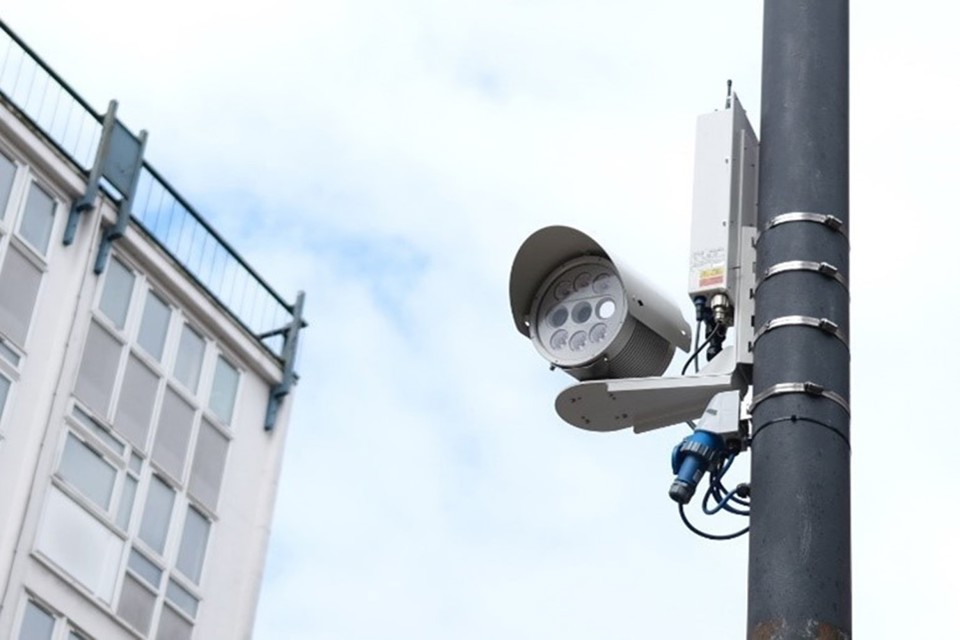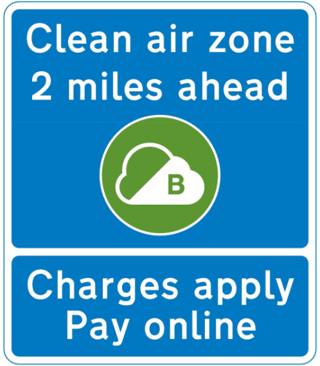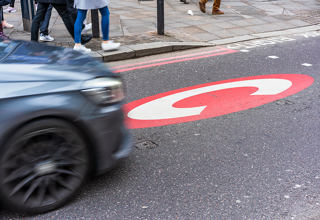Bristol has launched its clean air zone (CAZ) today (Monday, November 28), charging drivers between £9 and £100 per day to enter parts of the city.
The city has decided to implement a Class D CAZ, which will require drivers of all older, non-compliant, vehicles to pay a daily fee to enter the zone. The plans were initally drawn up in March 2021.
Cars, taxis and vans that don’t meet the required emissions standard will be charged £9 per day, while trucks, buses and coaches will pay £100.
Daily charges for Bristol's CAZ apply 24 hours a day (midnight to midnight), seven days a week, all year round, and must be paid within six days of travel.
Exemptions apply for petrol vehicles that meet Euro 4 standard and diesels that meet Euro 6 standard. Electric and hydrogen vehicles are also exempt, as are motorbikes and modified or retrofitted vehicles registered with the Energy Saving Trust’s Clean Vehicle Retrofit Accreditation Scheme (CVRAS).
Mayor of Bristol Marvin Rees said: “What an incredible milestone we’ve achieved today, launching Bristol’s clean air zone to help create a city that is healthier for everyone to grow up, live and work in.
“No vehicles are banned from entering the central zone, and Bristol remains very much open to all residents, visitors and businesses, particularly as we look ahead to the busy Christmas period.”
He continued: “We have always sought to reduce air pollution in Bristol to improve the city’s health, but we’re also mindful of the financial strain people are under at the moment.
“We have taken our time to find a way to clean up our air, while also providing support to those who need it most.
“Temporary exemptions and financial support are still available, and I urge people to check if they’re eligible.”
To date, the council has had more than 6,000 applications for financial support such as grants and loans to change or upgrade vehicles.
More than 1,500 applications for temporary exemptions have been approved, mostly to Blue Badge holders, and in excess of 8,000 active travel offers such as bus tickets and Voi scooter credit have been given out.
From today, the council will send Penalty Charge Notices to people who drive non-compliant vehicles in the Zone and do not pay the appropriate daily charge.
However, for the next six weeks, people will be given the option of a special payment offer which gives seven additional days to pay the appropriate daily charge for that journey. This is £9 for private cars, taxis and light goods vehicles and £100 for heavy goods vehicles, buses and coaches. If the charge is paid, the remaining Penalty Charge of £120 will be cancelled.
Failure to pay this daily charge will result in a full Penalty Charge Notice of £120, or £60 if paid within 14 days, as well as the outstanding daily charge.
Waze launches ‘smart routing’ around Bristol’s CAZ
Waze has launched ‘smart routing’ around Bristol’s clean air zone to help drivers avoid fines.
Through the support of Waze’s volunteer Map Editor community, who have added permit notifications and a designated CAZ area to the map, motorists in Bristol are now able to indicate in the app whether their vehicle is CAZ-compliant.
Drivers will also receive alerts if their route goes through the CAZ zone and can choose whether or not to travel that way.
The routing will help drivers steer clear of unnecessary fines and ultimately reduce their carbon footprint by finding optimal routes to travel, says Waze.
Waze UK country manager, Ruairidh Roberts, said: “Toxic air pollution affects everyone in Bristol and, thanks to the invaluable efforts of our Map Editor community, we’re helping drivers in the area stay CAZ-compliant.
“Working together, we can outsmart traffic and provide the route to cleaner air, one notification at a time.”
Waze’s maps are kept up-to-date by a community of volunteer map editors, who work to ensure the new regulations are reflected on the Waze map.
Users can then tell the app whether their vehicle is compliant and plan their journeys accordingly.
Waze was the first navigation app in the UK to support this type of smart routing when London’s ULEZ launched in 2019 in partnership with Transport for London (TfL).
It now supports routing around 10 of the country’s Low Emission Zones, including Bath, Birmingham, Glasgow, Oxford and Portsmouth.






















Login to comment
Comments
No comments have been made yet.